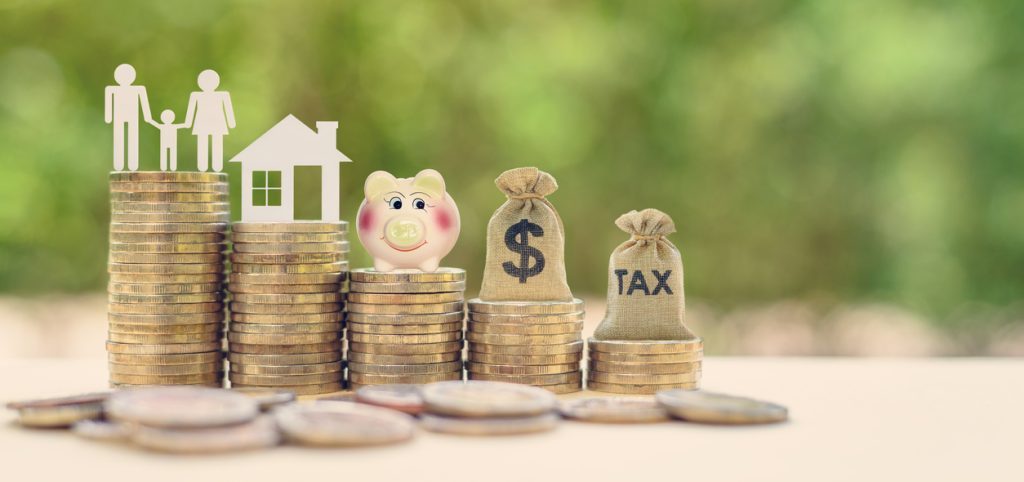How to manage your budget and cashflow in a crisis
By Andrew Dunbar | 18/03/2020

With the globe in the midst of the COVID-19 pandemic, many people are wondering about the financial impact on their household. Some may be concerned by the potential of lost income, from casual cutbacks to reduced small business sales; for others, it's simply about how to manage a budget when there are extra costs that haven't been accounted for.
It's recommended that you have a buffer of around six months' worth of your expenses to cover unexpected events – whether they are personal situations or, as in this case, global ones. But, according to research, less than half of Americans are financially prepared for COVID-19, and while we don’t have Australian numbers yet, it's reasonable to assume we might see figures in a similar ballpark.
The situation continues to unfold rapidly, so it can be hard to predict what the next hour will hold, let alone the next week or month, but there are some things you can do to better manage your money through the uncertainty.
Know the potential impact
Take the time to understand what some of the impacts could be and, where possible, put a dollar figure on them. Think about best-and worst-case scenarios, and consider:
- If someone in your household is a casual employee, how likely is it that their hours will be impacted? What would this look like?
- If you run a business, what does your financial modelling look like, and how will this impact your personal finances?
- If workplaces are shut down, or your family needs to self-isolate, will everyone be entitled to full sick pay? If not, what could the loss look like in dollar terms?
- If you have children, and schools and childcare centres are closed, or you can't send them due to illness, how will this impact your income?
- If you, like nearly 856,000 Australian parents, rely on grandparents to provide care, is this going to change? What will it cost if it does?
Review your expenses
The next step is to look at where you can make some short-term expense reductions or stem outgoing cashflow. It's always advisable to know where your money is going, but the reality is that many of us don't.
For most of us, social activities have been reduced, so there may be some gains to make here. Other areas to think about include:
- Stop using the credit card. Try to make purchases using your debit card so you can avoid a nasty bill shock or increased interest payments when you need it the least.
- Cut back on non-essential items. This could include your subscription and streaming services, for example. While there's no denying that Netflix will become increasingly important if we are in any isolation or lock-down scenario, many of us have multiple services that we don’t even use. Most of these services allow you to stop and start as you like, so use this flexibility to your advantage, and pause those you aren't using.
- Make a shopping list with alternatives. Your shopping list may be a little longer than usual as you prepare for the unknown, but you should still have one, rather than just collecting anything left on the shelves as we are witnessing many do. Making a list before you reach the crowded supermarket gives you the time to think clearly, review what you have, and make smarter purchases, with a plan for what you will buy if some items are not available.
Speak to your suppliers
Beyond usual hardship clauses, many suppliers are responding to this crisis with offers of payment delay, extra access/services, or other support.
Go to the supplier's website and review their offer, if it will help you in the short-term without any longer-term penalty, consider making use of it. And if they haven’t got an offer out there, pick up the phone and give them a call. You might experience a long wait time, but it may be worth it. It can also be helpful to look at what competitors have offered and ask them to match it.
You can always contact your bank or mortgage broker and utility providers to ask them for a better deal, and if you haven't done this for a while, it might be a good time.
You may also consider whether you can cancel prepaid plans, such as holidays or event tickets. Many suppliers have relaxed their cancellation policies, and while everyone doing this might cripple businesses, if you need the cash to make your budget work, then it's an avenue worth exploring.
Create a short-term budget
Now that you have explored potential losses and expense reductions, you really need to have a short-term budget in place. Even if you do have the recommended six-month buffer of savings, it's best to avoid dipping into this unless it is absolutely necessary.
Don't discount investment options
If you already have a budget in place and you are financially comfortable, it may also be worth looking at whether you can afford to invest in growth assets, like shares. Shares have fallen around 30%, and history shows that the point of maximum panic is often the point of maximum financial opportunity.
It can also be helpful to talk to your financial adviser. If you don’t have one, talking to one now can be a great idea. The right adviser will work to understand you and help you look at how you will weather any hardship in the short term and how you plan towards financial security in the longer one.
General Advice warning
The information provided in this blog does not constitute financial product advice. The information is of a general nature only and does not take into account your individual objectives, financial situation or needs. It should not be used, relied upon, or treated as a substitute for specific professional advice. Apt Wealth Partners (AFSL and ACL 436121 ABN 49 159 583 847) and Apt Wealth Home Loans (powered by Smartline ACL 385325) recommends that you obtain professional advice before making any decision in relation to your particular requirements or circumstances.









